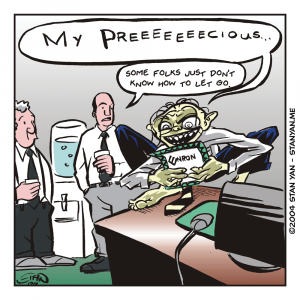There are times when trading profitably requires an accurate gauge of mass opinion. It can be useful to find out what the masses think and follow them. Well, sometimes it’s useful. The dynamics of a trade can be 99% psychology. Take Apple Computer (AAPL), for example. In 2005, sales of iPods pushed the stock price so high that Apple decided to have a stock split. Many market observers were watching, and even astute observers weren’t quite sure what would happen next.
Many observers even thought that it might be a good time to go short. How far could it go up? One might have predicted that the price would stabilize in 2005, or even go down. In the past every time Apple developed an innovative product, another company stole it. Look at PDAs (personal digital assistants). Apple invented them. Remember the Newton? It failed miserably. Today, Apple doesn’t even sell a PDA, while Palm and other companies do well selling a PDA to every businessperson.
So why would anyone think Apple could maintain their share of the sales market for digital music players? Some other company would sell a competitive product and cut into their sales, right? It looks like it didn’t happen this time, though. But if the past predicted the future, it should have. And what about the iTunes music store? Other companies now sell music online, but it doesn’t seem to matter. What about the computer market? The Macintosh CPUs were stuck at below 2 GHz last year. There was good reason to believe one year ago that Apple’s stock price might go down. However, it seems that Apple Computer overcame a number of potential obstacles. Sales have continued to increase.
On Wednesday, January 11, 2006, AAPL closed at 84.80, over $50 more a share than the previous year, which was also significantly higher than the previous year. Why is the price rising? Psychology plays a huge role. Although sales and profits increase a stock price, in this case, people’s opinions are a significant factor. Apple isn’t the only producer of electronic products, but it seems that the buying public believes that they must have their products. No one actually needs their electronic products, but that doesn’t matter. What matters is that people believe that they need them.
Some media analysts also seem to be fans of Apple. At MacWorld Expo, Apple CEO Steve Jobs announced that new, faster Intel-based Macintosh computers were on store shelves. Some industry writers have suggested that this could lead to an increase in Apple’s market share in computer sales, which has been relatively minimal for years.
Most stock analysts also suggest buying Apple or holding it. So what will happen next? It isn’t clear. Nothing is certain. Apple continues to sell iPods, but will it go on forever? Granted, the latest iPod seems impossibly small and it plays videos! Who wouldn’t want one? The problem with anticipating the future price is that it comes down to people’s opinions. It’s just mass psychology.
What’s the point of the story? It wasn’t to analyze Apple computer. The point is mere to remind you that any trade is about psychology: what the masses think, what the media thinks, what market participants think. And if they think there is a good reason to believe that a stock price should go up, it will. An acquaintance recently asked, “I watched Apple for all of 2005, waiting to buy at a low, but it kept going up. Should I buy now before it hits $100?” Maybe there is someone with insider information who knows a better answer to the question, but frankly, it’s largely a matter of mass opinion.
No one actually knows what it will be for certain. Will AAPL hit $100? Who knows? Interest rates have stopped rising, but credit card payments are going up and consumer confidence is still a little shaky. Maybe people won’t buy any more iPods or new Macintosh computers. Does no one really know? Perhaps younger consumers love the iPod so much that it is the one single product they will buy even if it means curbing their cell phone usage or staying home and listening to music rather than eating out. No one has a crystal ball that will tell us what will happen next.
We can look at general trends, gather information from opinion polls, and try to make educated guesses about what will happen in the future. But in the end, there is nothing you can do but analyze all available information you can gather, look at it logically and carefully, try to anticipate where the markets will go, develop a trading plan, and execute it. What happens next is anyone’s guess. The only thing you can do is risk money you can afford to lose, set a protective stop, and see what happens. Maybe your intuition will be right. It’s all a matter of psychology, yours and the psychology of masses.


